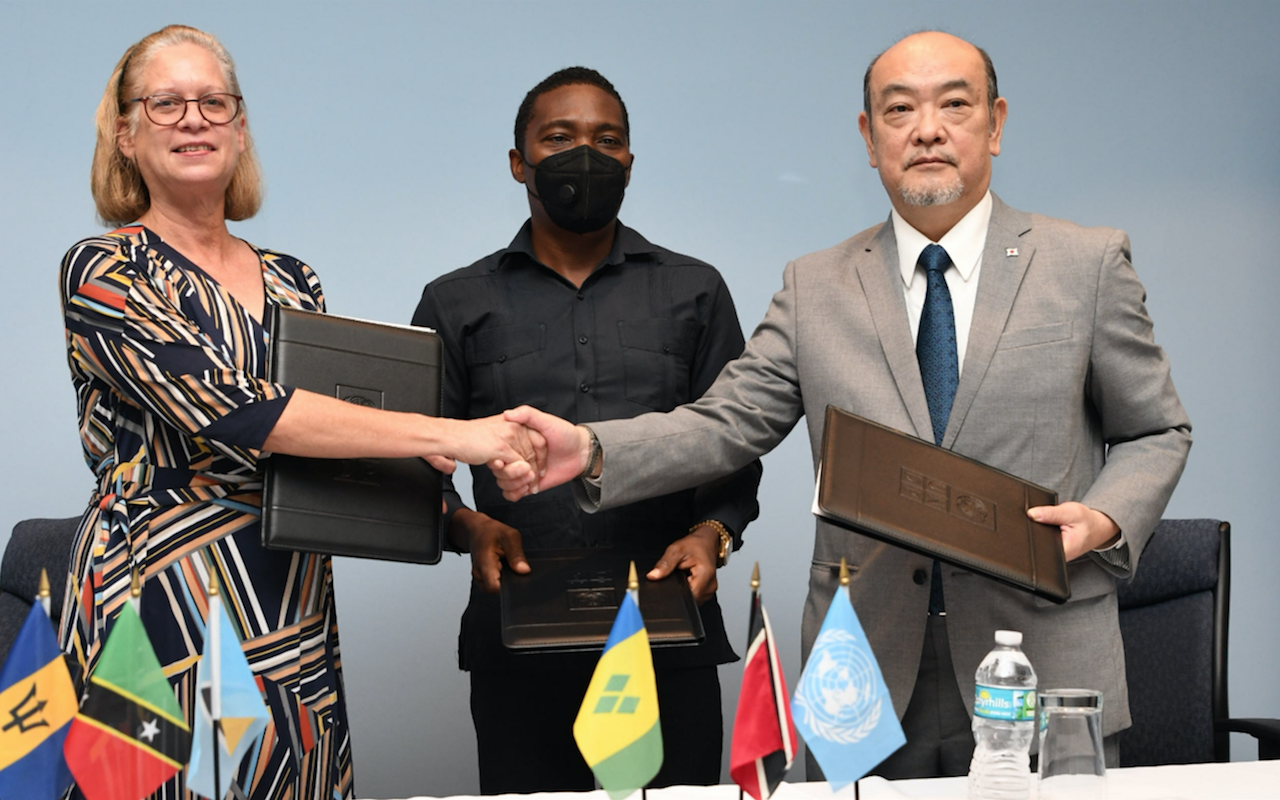Barbados is one of five Caribbean countries to benefit from US$2 million each in equipment to aid in the battle against the Sargassum seaweed.
This was made possible under a US$12 million three-year grant-aid project entitled: The Project for Improving National Sargassum Management Capacities in the Caribbean being funded by the Government of Japan and executed by the United Nations Development Programme (UNDP).
Today, the official signing ceremony between Japan and the UNDP took place at UN House, today.
Speaking during the event on behalf of Barbados and other recipient countries, Minister of the Environment and National Beautification, Adrian Forde, thanked Japan for the gesture, as he welcomed any intervention to assist Barbados and its Caribbean neighbours in the fight against the Sargassum seaweed.
“That has been our challenge over the last couple of years with an abnormal influx [of Sargassum seaweed] due to the vagaries of climate change,” he said. The presence of the algae also created problems for marine life and the country’s biodiversity, he explained.
Forde said while the seaweed was primarily used for composting, it was believed that there was a greater value chain after it was harvested, and could therefore become a viable industry.
He said Government remained committed to looking at ways of getting biofuel from Sargassum, while there was also a new thrust to ensure that it became part of the feed stock in the agricultural and livestock sectors.
“We will see how we can get a profit or value chain and ensure that there is commercial activity from the Sargassum seaweed,” the minister assured.
Ambassador Extraordinary and Plenipotentiary of Japan to Barbados, Teruhiko Shinada, explained that the equipment would include an aquatic conveyor belt, workboats or barges, machine surface beach rakes, walk behind beach surface rakes, light weight tractors, dump trucks, and float booms and barriers.
And, while the equipment is set to cost US$2 million per country, the project will also see Barbados, Trinidad and Tobago, St. Kitts and Nevis, St. Vincent and the Grenadines and St. Lucia benefiting from a transfer of expertise and technical building knowledge to collect, remove, transport and dispose of the algae in a sustainable way.
The project will also explore scientific monitoring technologies, such as UAS drones and Geographical Information Systems, which are spatial mapping tools to evaluate the quantum of Sargassum influx.
Ambassador Teruhiko said Japan understood the challenges caused by the Sargassum seaweed, and recognised the importance of the partnership.
Resident Representative with the UNDP for Barbados and the Eastern Caribbean, Valerie Cliff, said that the project aimed to support national capacity for the removal and disposal of the seaweed in each of the five countries.
She explained that it was also designed to build coastal resilience and mitigate the negative impacts on economic sensitive areas like fisheries, public health and tourism in the recipient countries. (BGIS)




